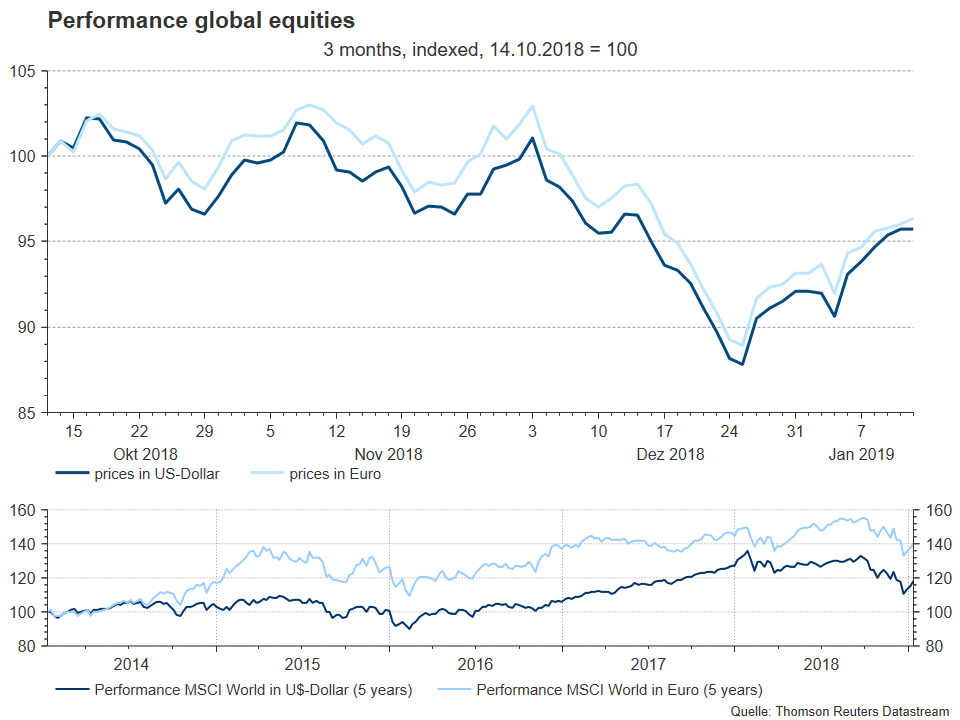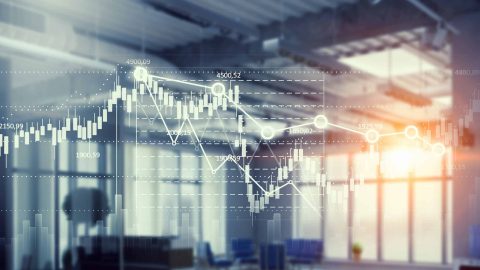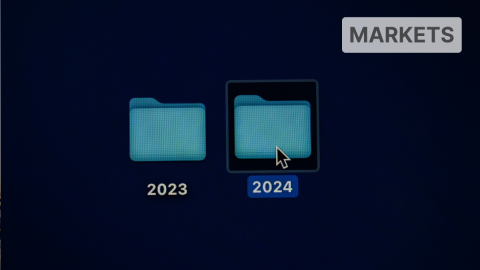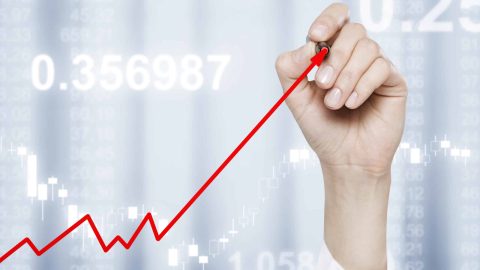As hopes for an end to the trade war between the US and China increase, the stock markets reflected the sentiment with gains at the outset of the new year. After recent talks between representatives of the two countries in Beijing, the leading US index, Dow Jones, gained almost 3 per cent by Friday. Major European stock indices such as the DAX or the Euro-Stoxx-50 also gained between 2 and 3 per cent. Outperforming them, Austrian stock index ATX even gained over 6 per cent since the start of the year. However, while the stock markets saw the most gains during the eagerly awaited talks, the unresolved differences after the end of the negotiations halted the positive development again.

Note: Past performance is not indicative of future development.
Negotiators from China and the USA met in Beijing for talks in the second week of January. The negotiations to end the trade dispute were originally scheduled for two days, but were then surprisingly extended, to close scrutiny by the markets. These were the first direct talks since US President Donald Trump and China’s Head of State Xi Jinping had agreed a 90-day break in the customs dispute at the beginning of December after a series of escalating mutual punitive tariffs in the billions.
Progress after negotiations, but many differences still unresolved
Both countries reported constructive talks. China’s Ministry of Commerce stated that the talks fostered mutual understanding and yielded a basis for addressing the concerns of both sides. Yet despite the initial progress, much work still needs to be done to end the trade war.
According to the US Department of Commerce, China has kept its promises to buy “significant quantities” of US products and to allow more service deals. According to the Wall Street Journal, progress has been made regarding additional imports and the opening of the Chinese market to US capital. However, differences remain over issues such as protection of intellectual property and subsidies for Chinese companies.
During the talks, the Chinese government agreed to open its market to further genetically modified grains, which was considered a sign of progress as the US had been demanding this for years. According to insiders cited by the Wall Street Journal, the trade talks also paved the way for possible further higher-level negotiations. A possible next step would be a meeting between China’s Vice Premier Liu He and US Trade Representative Robert Lighthizer. US President Trump could also meet China’s Vice President Wang Qishan for talks at the World Economic Forum in Davos.
However, time is of the essence. In December, US President Trump had promised to provisionally suspend the announced further increase in US punitive tariffs on Chinese imports to the tune of USD 200bn until 1 March. If no agreement is reached by then, the dispute could escalate again, which could impact not only the economy in China and the USA, but also some European countries hard.
Meanwhile, Trump’s policy continues to make headlines in other areas. The trade dispute between the US and the EU recently saw some progress after high-ranking representatives of both sides came together to discuss an agreement. However, the conflict over possible US punitive tariffs on European cars is not yet resolved, and neither is the dispute over Trump’s planned border wall to Mexico, which is preventing the adoption of a budget law by Congress. As a result, most of the federal authorities have been shut down since 22 December.
Legal note:
Prognoses are no reliable indicator for future performance.
Legal disclaimer
This document is an advertisement. Unless indicated otherwise, source: Erste Asset Management GmbH. The language of communication of the sales offices is German and the languages of communication of the Management Company also include English.
The prospectus for UCITS funds (including any amendments) is prepared and published in accordance with the provisions of the InvFG 2011 as amended. Information for Investors pursuant to § 21 AIFMG is prepared for the alternative investment funds (AIF) administered by Erste Asset Management GmbH pursuant to the provisions of the AIFMG in conjunction with the InvFG 2011.
The currently valid versions of the prospectus, the Information for Investors pursuant to § 21 AIFMG, and the key information document can be found on the website www.erste-am.com under “Mandatory publications” and can be obtained free of charge by interested investors at the offices of the Management Company and at the offices of the depositary bank. The exact date of the most recent publication of the prospectus, the languages in which the key information document is available, and any other locations where the documents can be obtained are indicated on the website www.erste-am.com. A summary of the investor rights is available in German and English on the website www.erste-am.com/investor-rights and can also be obtained from the Management Company.
The Management Company can decide to suspend the provisions it has taken for the sale of unit certificates in other countries in accordance with the regulatory requirements.
Note: You are about to purchase a product that may be difficult to understand. We recommend that you read the indicated fund documents before making an investment decision. In addition to the locations listed above, you can obtain these documents free of charge at the offices of the referring Sparkassen bank and the offices of Erste Bank der oesterreichischen Sparkassen AG. You can also access these documents electronically at www.erste-am.com.
N.B.: The performance scenarios listed in the key information document are based on a calculation method that is specified in an EU regulation. The future market development cannot be accurately predicted. The depicted performance scenarios merely present potential earnings, but are based on the earnings in the recent past. The actual earnings may be lower than indicated. Our analyses and conclusions are general in nature and do not take into account the individual characteristics of our investors in terms of earnings, taxation, experience and knowledge, investment objective, financial position, capacity for loss, and risk tolerance.
Please note: Past performance is not a reliable indicator of the future performance of a fund. Investments in securities entail risks in addition to the opportunities presented here. The value of units and their earnings can rise and fall. Changes in exchange rates can also have a positive or negative effect on the value of an investment. For this reason, you may receive less than your originally invested amount when you redeem your units. Persons who are interested in purchasing units in investment funds are advised to read the current fund prospectus(es) and the Information for Investors pursuant to § 21 AIFMG, especially the risk notices they contain, before making an investment decision. If the fund currency is different than the investor’s home currency, changes in the relevant exchange rate can positively or negatively influence the value of the investment and the amount of the costs associated with the fund in the home currency.
We are not permitted to directly or indirectly offer, sell, transfer, or deliver this financial product to natural or legal persons whose place of residence or domicile is located in a country where this is legally prohibited. In this case, we may not provide any product information, either.
Please consult the corresponding information in the fund prospectus and the Information for Investors pursuant to § 21 AIFMG for restrictions on the sale of the fund to American or Russian citizens.
It is expressly noted that this communication does not provide any investment recommendations, but only expresses our current market assessment. Thus, this communication is not a substitute for investment advice, does not take into account the legal regulations aimed at promoting the independence of financial analyses, and is not subject to a prohibition on trading following the distribution of financial analyses.
This document does not represent a sales activity of the Management Company and therefore may not be construed as an offer for the purchase or sale of financial or investment instruments.
Erste Asset Management GmbH is affiliated with the referring Sparkassen banks and Erste Bank.
Please also read the “Information about us and our securities services” published by your bank.
Subject to misprints and errors.



